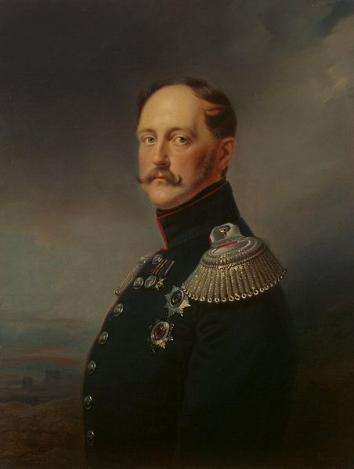I like to imagine that British historian Orlando Figes is having a good time this month remembering all the people back in 2012 who questioned why he had decided to write a 600-page history of the Crimean War.
Like a lot of people, I would guess, I’m only now reading his very well-written account of a conflict that’s little remembered today except for Florence Nightingale and “The Charge of the Light Brigade.”
One particularly interesting aspect is that what we think of today as the “Cold War” mindset among some Western leaders predates the Soviet Union, and has its roots in British fears of Russian expansion during the 19th century. (Remember, Britain’s disastrous forays into Afghanistan were premised on the far-fetched notion that Russia could threaten British holdings in India.) The language of the Russia hawks in parliament in the run-up to Crimea wouldn’t have sounded all that out of place during the Cold War or today.
On the other side, Russian nationalists of Czar Nicholas I’s day, shared with their modern descendants a distinct belief that as their country’s influence grew, it was being cynically judged by different standards than western powers. (Western reporters have referred to this tendency as “whataboutism”—deflecting any criticism of Russia by saying “what about” a different abuse committed in the West.)
Figes quotes a long passage from Mikhail Pogodin, a professor at Moscow University and one of the leading exponents of “pan-Slavism”—the belief that all the Slavic peoples of Europe should be united in one state. It comes from an 1853 memorandum to Nicholas, which the tsar underlined enthusiastically in several places:
France takes Algeria from Turkey, and almost every year England annexes another Indian principality: none of this disturbs the balance of power; but when Russia occupies Moldavia and Wallachia, albeit only temporarily, that disturbs the balance of power. France occupies Rome and stays there several years during peacetime: that is nothing; but Russia only thinks of occupying Constantinople, and the peace of Europe is threatened. The English declare war on the Chinese, who have, it seems, offended them: no one has the right to intervene; but Russia is obliged to ask Europe for permission if it quarrels with its neighbor. England threatens Greece to support the false claims of a miserable Jew and burns its fleet: that is a lawful action; but Russia demands a treaty to protect millions of Christians, and that is deemed to strengthen its position in the East at the expense of the balance of power. We can expect nothing from the West but blind hatred and malice, which does not understand and does not want to under stand.
Nicholas approvingly commented in the margin of the page, “That is the whole point.”
It doesn’t feel like much of a stretch to hear echoes of Pogodin’s point of view in Vladimir Putin’s statement on Crimea on Tuesday, which listed a litany of complaints about Western intervention in Kosovo, Libya, the “color revolutions,” and the Arab Spring—actions that the president said demonstrated the hypocrisy of the U.S. and European position on Crimea.
“This is not even double standards; this is amazing, primitive, blunt cynicism,” Putin said. “One should not try so crudely to make everything suit their interests, calling the same thing white today and black tomorrow.”
The basic sentiment of Putin’s speech is a lot older than his presidency, and seemingly a lot older than the Cold War as well.
